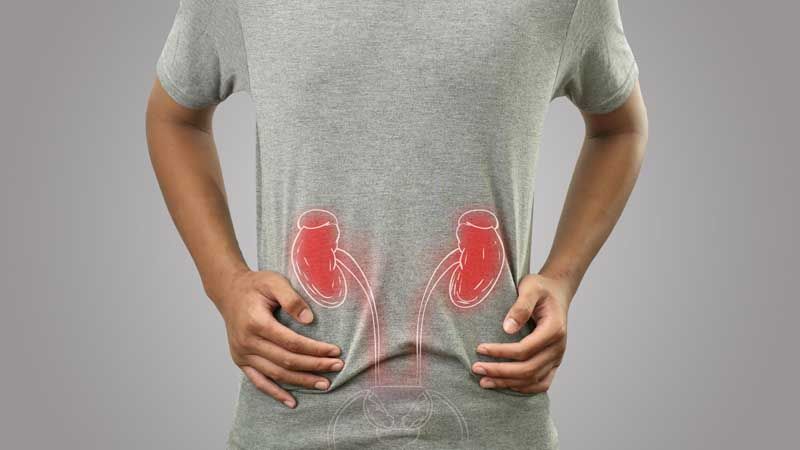Frequent Urination in Men: Common Causes & When to Seek Help
- 8 months ago
Have you noticed making more trips to the bathroom than usual? Frequent urination can be an annoying and sometimes concerning issue for men. While it may be due to something as simple as increased fluid intake, it could also indicate an underlying health condition. In this blog, we will explore the common causes of frequent urination in men, when it becomes a cause for concern, and what you can do about it.
Also read: What is your urine telling you about your health?
What Does ‘Frequent Urination’ Mean?
Frequent urination refers to the need to urinate more often than normal. While urination frequency varies from person to person, most healthy adults urinate about 6 to 8 times a day. If you find yourself needing to go to the bathroom more often, especially if it disrupts daily activities or sleep, it could indicate an underlying issue. Frequent urination can be accompanied by other symptoms such as urgency, pain, or incomplete emptying of the bladder, which may require medical attention.
Understanding Normal vs. Frequent Urination
A healthy adult typically urinates 6 to 8 times each day. However, this number can vary based on fluid intake, diet, and lifestyle. Frequent urination is generally considered a condition where a person feels the need to urinate more than usual, often disrupting daily activities or sleep patterns. If you're experiencing an increase in frequency without a clear reason, it's worth investigating.

Common Causes of Frequent Urination in Men
Urinary Tract Infections (UTIs)
Although UTIs are more common in women, men can also experience them. A bacterial infection in the urinary tract can lead to increased urgency and frequency of urination, burning sensations, cloudy or foul-smelling urine, and discomfort.
Enlarged Prostate (Benign Prostatic Hyperplasia - BPH)
As men age, the prostate gland tends to enlarge, which can put pressure on the bladder and urethra, leading to frequent urination, especially at night (nocturia). Other symptoms of BPH include a weak urine stream, difficulty starting and stopping urination, and the feeling of incomplete bladder emptying.
Diabetes
High blood sugar levels cause the kidneys to work harder to filter excess glucose, resulting in increased urine production and frequent urination. Other signs of diabetes include excessive thirst, fatigue, unexplained weight loss, and slow-healing wounds.
Overactive Bladder (OAB)
Overactive bladder is a condition where the bladder muscles contract involuntarily, leading to sudden urges to urinate, even if the bladder isn’t full. This can be triggered by neurological disorders, aging, or lifestyle factors.
Prostatitis (Prostate Inflammation)
Inflammation or infection of the prostate can cause urinary urgency, frequent urination, pain in the pelvic area, and discomfort during urination. Prostatitis can be bacterial or non-bacterial, and chronic cases may require long-term management.
Bladder Stones
Small, hard mineral deposits can form in the bladder due to concentrated urine, infections, or an enlarged prostate. These stones can irritate the bladder wall, leading to frequent urination, pain, blood in the urine, and difficulty emptying the bladder.
Neurological Disorders
Conditions like Parkinson’s disease, multiple sclerosis, stroke, and spinal cord injuries can affect the nerves controlling the bladder, leading to urinary frequency and incontinence.
Diuretics & Medications
Certain medications, especially diuretics (water pills) prescribed for high blood pressure or heart disease, increase urine output, causing frequent urination. Other drugs, such as those for anxiety, depression, or allergies, may also impact bladder control.
Stress & Anxiety
Psychological factors such as stress and anxiety can contribute to an overactive bladder, leading to increased urination frequency. Many people experience urinary urgency before public speaking or in high-stress situations.
Drinking Too Much Fluid or Caffeine/Alcohol
Excessive fluid intake, especially caffeinated or alcoholic beverages, can lead to increased urine production. Caffeine and alcohol act as diuretics, stimulating the bladder and causing frequent urination.

When to Seek Medical Help?
Frequent urination isn’t always a sign of a serious condition, but it’s essential to pay attention to additional symptoms. Seek medical attention if you experience:
- Pain or burning during urination
- Blood in the urine (hematuria)
- Difficulty starting or stopping urination
- A weak urine stream or dribbling
- Fever, chills, or lower back pain
- Increased thirst and unexplained weight loss (which may indicate diabetes)
- Sudden and severe urgency to urinate
- Frequent nighttime urination disrupts sleep
- Unintentional urine leakage (incontinence)

Diagnosis & Treatment Options
If you're experiencing persistent frequent urination, a healthcare provider may perform the following diagnostic tests:
- Urinalysis: Checks for signs of infection, blood, or abnormal sugar levels.
- Blood Tests: Measures blood sugar levels to check for diabetes and assess kidney function.
- Prostate Exam: Determines if the prostate is enlarged.
- Bladder Scan or Ultrasound: Evaluate the bladder and prostate size.
- Urodynamic Tests: Assess bladder function and urine flow.
Treatment Options
Treatment depends on the underlying cause of frequent urination and may include:
- Medications: Antibiotics for infections, alpha-blockers for BPH, or anticholinergics for overactive bladder.
- Lifestyle Changes: Limiting caffeine and alcohol, managing fluid intake, and avoiding drinking fluids close to bedtime.
- Pelvic Floor Exercises: Strengthening bladder control through Kegel exercises.
- Bladder Training: Training the bladder to hold urine longer by gradually increasing the time between bathroom visits.
- Surgical Interventions: In severe cases of prostate enlargement or bladder stones, surgery may be necessary.
Preventive Measures
To reduce the risk of frequent urination and maintain good urinary health, consider these preventive steps:
- Stay hydrated but limit fluid intake before bedtime.
- Reduce caffeine, alcohol, and spicy foods that can irritate the bladder.
- Maintain a healthy weight, as obesity can put extra pressure on the bladder.
- Practice pelvic floor exercises to strengthen bladder muscles.
- Follow proper hygiene to prevent urinary tract infections.
Conclusion
Frequent urination in men can be a temporary inconvenience or a sign of an underlying health issue. Identifying the cause early can help manage symptoms and prevent complications. If your symptoms persist, worsen, or interfere with daily life, consult a healthcare professional for proper diagnosis and treatment. By adopting healthy lifestyle habits and seeking timely medical advice, you can improve your urinary health and overall well-being.








